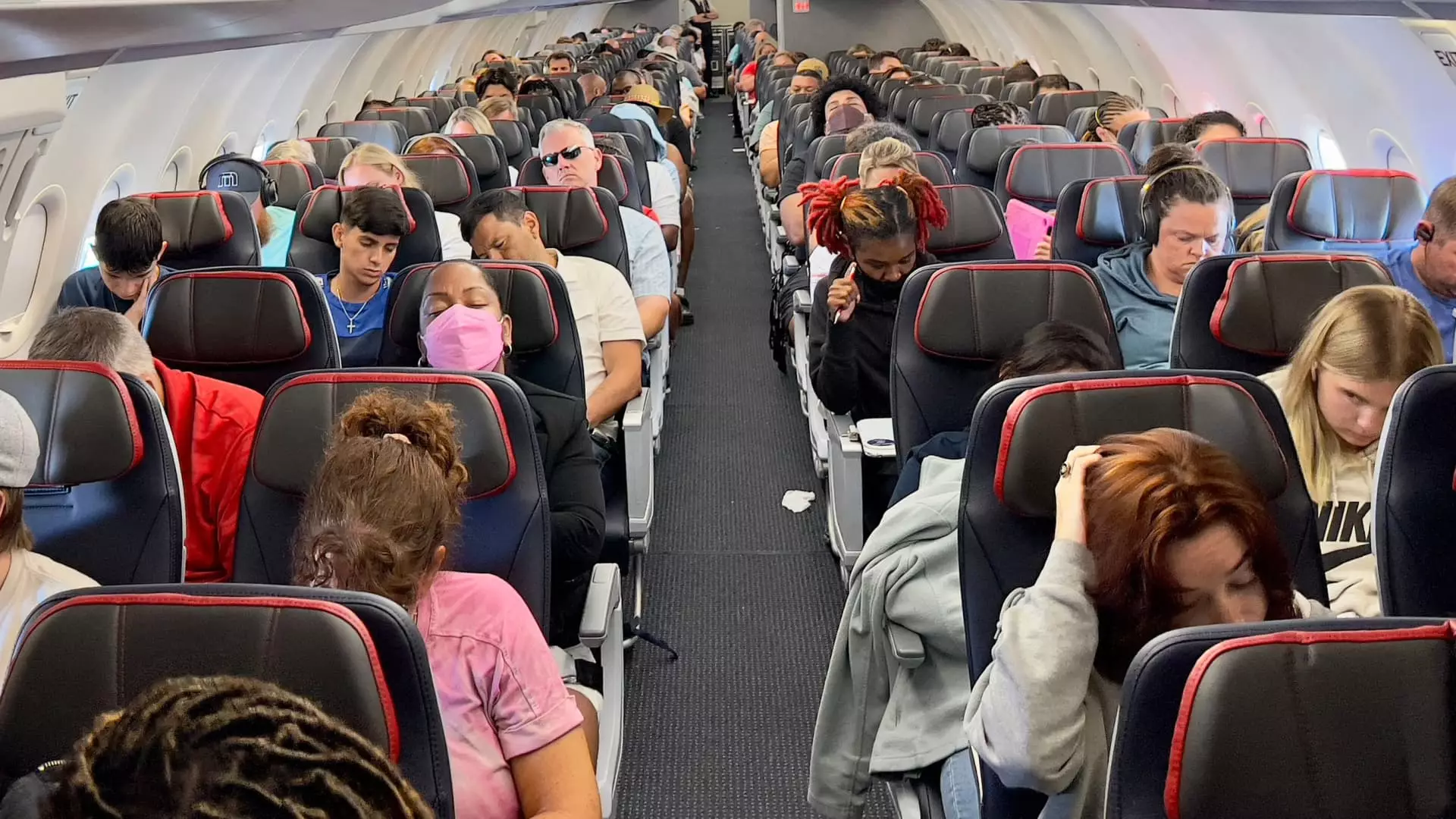In recent years, the airline industry in the United States has increasingly relied on ancillary revenue streams, particularly through the implementation of seat selection fees. A recent report from the Senate Permanent Subcommittee on Investigations highlights a staggering $12.4 billion generated between 2018 and 2023 by major airlines. This figure not only underscores the lucrative nature of seat fees but also raises concerns about the evolving landscape of airline costs that passengers must navigate.
From premium seating to locations that offer minimal comfort, these fees have become prevalent across major carriers such as American, Delta, United, Spirit, and Frontier. What was once a straightforward transaction for travelers now resembles a tiered pricing structure reminiscent of a menu in an upscale restaurant. The added complexity creates transparency issues for consumers and often leads to frustration, as passengers feel they are being charged for basic comfort and convenience.
The Shift in Revenue Sources
Notably, the financial success of seat selection fees has even outpaced traditional revenue sources. United Airlines’ earnings from these fees reached an impressive $1.3 billion last year alone, marking a significant milestone as this figure eclipsed revenue from checked bag fees for the first time since 2018. This shift suggests a systematic evolution within the airline business model—where airlines have efficiently monetized the passenger experience in areas that were previously included in base ticket prices.
While the elimination of change fees for standard economy tickets reflects an effort to attract and retain customers, the compensation has come in the form of higher fees for seat selection. Such practices have led many travelers to question whether they are truly benefiting from supposed cost savings or if they are simply shifting the financial burdens elsewhere.
The Political Response and Industry Pushback
The growing concern over what many are dubbing “junk fees” has drawn the scrutiny of lawmakers, with the Biden administration making it a priority to address these practices. Senator Richard Blumenthal, chair of the subcommittee, has announced an upcoming hearing to explore the implications further. The subcommittee has called airline executives to testify about these fees, indicating a serious intent to investigate a practice that many consumers find objectionable.
In response, Airlines for America—a trade association representing major U.S. airlines—defends the industry by asserting that competition within the market fosters affordability. They argue that the flexibility in pricing allows consumers to select options best suited to their needs. While this perspective may hold merit, it also overlooks the burden placed on passengers who are left to sift through intricate fee structures to determine the true cost of travel.
As passengers increasingly voice their dissatisfaction with transparency and fairness in airline pricing, the industry’s reliance on ancillary revenue streams like seat fees may face newfound scrutiny. The ongoing conversation among legislators, consumers, and airline operators signals a potential turning point in how air travel is priced in the future. It remains to be seen whether regulatory measures will lead to a re-evaluation of these practices or if airlines will continue to navigate toward more complex fare systems that challenge consumer trust. Ultimately, creating a fair and transparent flying experience must remain at the forefront of discussions within this essential sector.


Leave a Reply